Learn from advanced healthcare
In recent times, Vietnam has proactively and actively participated in global health cooperation programs, gradually narrowing the gap with the world in preventive medicine, treatment and health care. Many large hospitals have become bright spots in international cooperation such as: Cho Ray Hospital cooperates with Japan on organ transplants and advanced endoscopic techniques; Bach Mai Hospital cooperates with France and Germany in training specialized doctors; Pasteur Institute of Ho Chi Minh City cooperates with the US and South Korea in researching vaccines and emerging infectious diseases. These achievements not only help people enjoy high-quality health services right at home, but also affirm the integration capacity of Vietnamese medicine.

In Ho Chi Minh City, one of the bright spots in international medical cooperation is clearly shown in the cooperation activities signed between hospitals and major medical facilities and medical organizations in the world. For example, Children's Hospital 1 signed a cooperation agreement with Alder Hey Hospital (a pediatric hospital in Liverpool, UK) to exchange professional training, develop high technology and pediatric expertise. Tu Du Hospital cooperated with the European International School of Perinatal Medicine, Neonatology and Reproductive Health (PREIS, Italy) to build and develop a European-standard Fetal Intervention Center; cooperated with the European Resuscitation Council to establish a Neonatal Resuscitation Training Center, and this is the first center in Southern Vietnam. Blood Transfusion, Hematology, Oncology, Binh Dan Hospitals... also consider international cooperation activities as a key task, helping to update medical advances to serve patients.
Since the early 1990s, the Hospital for Tropical Diseases in Ho Chi Minh City has proactively expanded international cooperation. The most prominent is the strategic partnership with Oxford University (UK) through the Oxford University Clinical Research Unit (OUCRU) - one of the leading infectious disease research centers in Asia. This cooperation has turned the hospital into a "research base" for many international medical projects on dangerous infectious diseases such as dengue fever, Japanese encephalitis, tuberculosis, hepatitis, hand, foot and mouth disease, HIV/AIDS or Covid-19. Through OUCRU, hundreds of scientific works by Vietnamese doctors have been published in prestigious medical journals around the world, affirming the research capacity of Vietnamese medicine and opening up many new approaches in disease diagnosis, treatment and prevention.
Recently, VNVC Vaccine and Biological Factory and Medsintez Pharmaceutical Company (Russian Federation) signed a cooperation agreement to transfer comprehensive production technology of new generation biological drugs to treat many dangerous acute and chronic diseases. Tam Anh Hospital also signed an agreement with the Russian National Cancer Research Center on new technology in the field of cancer diagnosis and treatment. Many private hospitals are promoting cooperation with hospitals and world health organizations, such as Nam Sai Gon, Hoan My, Gia An 115, City International...
Join the response to global health challenges
Associate Professor, Doctor, Doctor Tang Chi Thuong, Director of the Ho Chi Minh City Department of Health, assessed that signing cooperation agreements with foreign hospitals has many important meanings both in terms of expertise and medical development strategy, helping domestic hospitals access modern technologies, advanced management processes and new treatment techniques, helping to improve the quality of health care and increase treatment efficiency. In addition, through exchange, training and technology transfer programs, medical staff in Ho Chi Minh City have the opportunity to learn in-depth knowledge and practical experience from international experts, contributing to improving the professional qualifications and skills of the city's medical human resources. International cooperation also helps Vietnamese doctors increase research and development opportunities, opening up opportunities to carry out joint medical research projects, apply advances in medicine to improve treatment methods and develop new drugs, etc.
Emphasizing the importance of international cooperation, Deputy Minister of Health Do Xuan Tuyen said that in recent years, the quality of medical examination and treatment in Vietnam has made remarkable progress; the professional level of medical staff is not inferior to that of other countries in the region and the world. International cooperation is one of the key factors helping the Vietnamese health sector improve service quality, quickly update medical advances, and at the same time strengthen the capacity to respond to medical challenges. In the context of deep integration, promoting international cooperation not only helps Vietnam quickly update the latest medical advances, but also improves the ability to respond to emerging epidemics, climate change and global health issues. “In the coming time, the Ministry of Health will continue to identify international integration as one of the pillars of development of the health sector, both in terms of expertise and technology. This is also an effective channel for mobilizing resources, especially in the context of limited public budget resources,” Deputy Minister Do Xuan Tuyen emphasized.
Currently, Vietnam has proactively expanded its cooperation network with about 80 countries and territories; maintained relations with more than 20 international organizations and over 200 foreign non-governmental organizations, international financial institutions, global funds, universities, research institutes, and major scientific centers around the world. Not stopping at bilateral cooperation, Vietnam's health sector has also actively participated in many multilateral cooperation mechanisms, as well as global health forums initiated by WHO, UNICEF, the United Nations Population Fund (UNFPA), and the Joint United Nations Programme on HIV/AIDS (UNAIDS).
Source: https://www.sggp.org.vn/hop-tac-quoc-te-chia-khoa-nang-tam-he-thong-y-te-post816260.html



![[Photo] Prime Minister Pham Minh Chinh chairs meeting to deploy overcoming consequences of storm No. 10](https://vphoto.vietnam.vn/thumb/1200x675/vietnam/resource/IMAGE/2025/10/3/544f420dcc844463898fcbef46247d16)
![[Infographic] Notable numbers after 3 months of "reorganizing the country"](https://vphoto.vietnam.vn/thumb/1200x675/vietnam/resource/IMAGE/2025/10/4/ce8bb72c722348e09e942d04f0dd9729)
![[Photo] Students of Binh Minh Primary School enjoy the full moon festival, receiving the joys of childhood](https://vphoto.vietnam.vn/thumb/1200x675/vietnam/resource/IMAGE/2025/10/3/8cf8abef22fe4471be400a818912cb85)


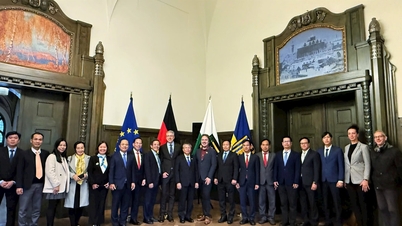

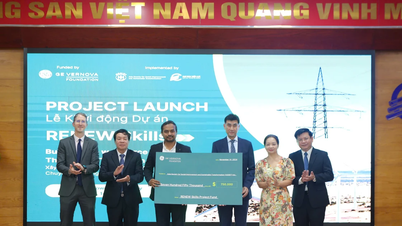

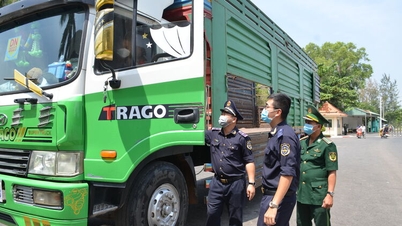

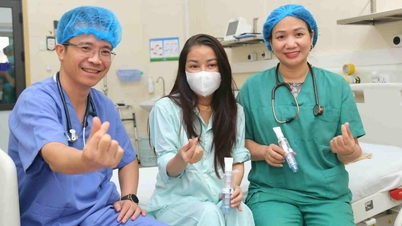

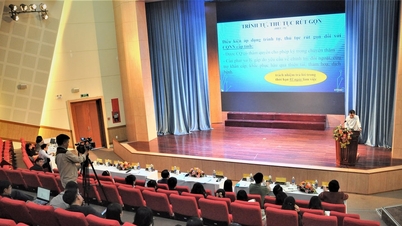







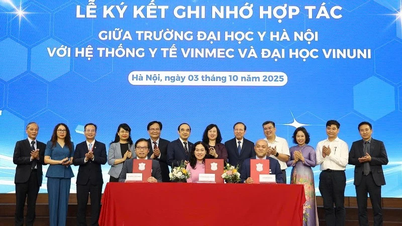

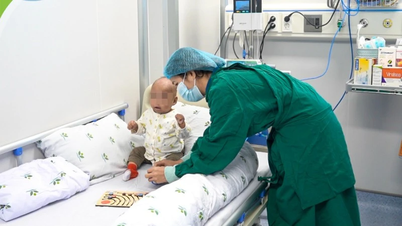
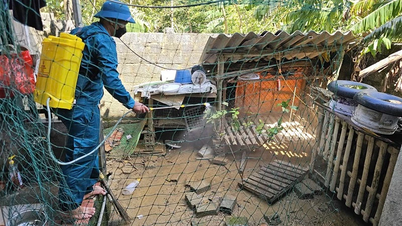




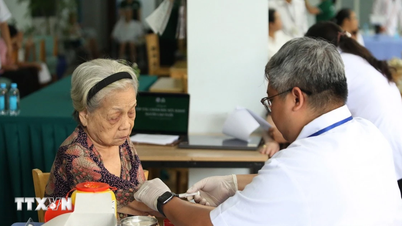
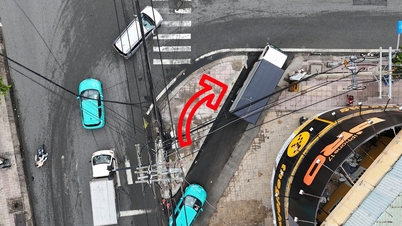
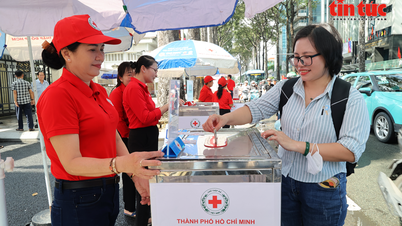


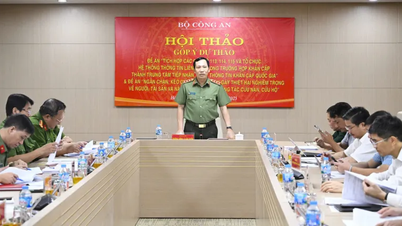
































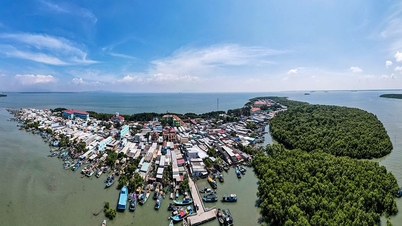
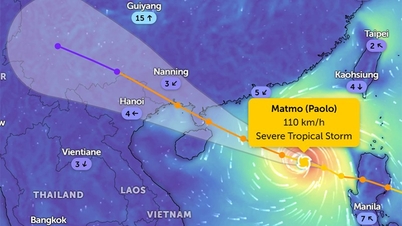


![[Infographic] Notable numbers after 3 months of "reorganizing the country"](https://vphoto.vietnam.vn/thumb/402x226/vietnam/resource/IMAGE/2025/10/4/ce8bb72c722348e09e942d04f0dd9729)
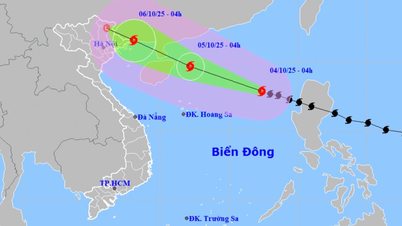

























Comment (0)